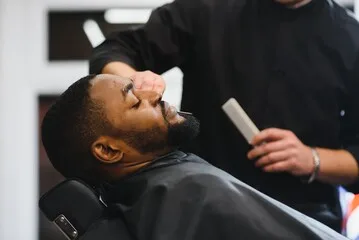Features
An urgent open letter to the President: Urgent call for intervention in the affairs of the Traditional Medicine Practice Council (TMPC)
Published
2 months agoon
His Excellency John Dramani Mahama
I write to you with deep frustration and concern regarding the state of the Traditional Medicine Practice Council (TMPC) and the ongoing challenges practitioners and associations face under its administration. The industry is currently in a state of turmoil due to unresolved issues concerning the position of the Registrar and the general operations of the Council. This has dragged on since 2024, unaddressed, and on February 10, 2025, it escalated to the National Security level. This should alert you to the pressing nature of the issue, as hostility and unresolved matters led to an unidentified complainant reporting some key stakeholders to National Security.
This situation has led to a growing lack of confidence in the regulatory body and significant unrest among practitioners. For some time now, the TMPC has been battling leadership and administrative challenges, particularly regarding the position of the Registrar. The absence of a clear and effective leadership structure has resulted in disorder, with regulatory inefficiencies causing severe setbacks for practitioners and industry stakeholders. This lack of direction and coordination has led to frustration among practitioners, many of whom have ceased complying with regulatory directives due to the Council’s perceived lack of legitimacy and functionality.
Your Excellency, this issue is of urgent concern because the TMPC is supposed to be the backbone of the regulation and promotion of traditional, herbal, and alternative medicine in Ghana. However, the ongoing leadership crisis has crippled its ability to function effectively, leaving practitioners feeling neglected, harassed, and demoralised. Without swift intervention, this unrest may escalate, further destabilising an industry that holds significant potential for national development.
Your commitment to the advancement of herbal, traditional, and alternative medicine is clearly articulated in the NDC’s manifesto. The provisions outlined in your plan to:
1. Encourage more public universities to establish herbal medicine research departments to enhance innovation and knowledge development.
2. Mainstream research-backed herbal, traditional, and alternative medicine into patient management at district hospitals.
3. Promote local and international partnerships for improved diagnostics, medicine production, and treatment.
4. Review the Ghana Health Service and Teaching Hospitals Act 1996 (Act 525) to strengthen regulation and quality control of herbal medicine products and clinical trials.
5. Promote investment in modern scientific methods and technological innovations for the identification of active plant ingredients and the production of safe herbal medicinal products.
These commitments indicate that your government understands the importance of a well-functioning TMPC. However, the ongoing crisis at the Council threatens to derail these noble objectives.
As a result, I respectfully urge your immediate intervention to:
• Resolve the leadership crisis at TMPC by ensuring a qualified and competent Registrar is appointed without further delay.
• Reassess and restructure the operations of the Council to align with the broader vision of enhancing herbal and alternative medicine in Ghana.
• Restore trust in the regulatory framework by engaging practitioners, associations, and stakeholders in a transparent and inclusive manner.
• Address the grievances of practitioners who feel unfairly targeted or neglected by the Council’s ineffective administration.
Your Excellency, the industry is in a state of distress, and tensions are escalating. The inability of the TMPC to function effectively is pushing practitioners to disregard regulatory directives, which could have serious implications for public health and safety. Immediate and decisive action is needed to restore order and ensure that Ghana’s traditional and alternative medicine sector thrives under proper regulatory oversight.
I trust that, as a leader committed to the advancement of this sector, you will take the necessary steps to resolve this crisis. I look forward to your prompt intervention in this matter.
Yours sincerely,
Prof. Raphael Nyarkotey Obu, esq
Professor of Naturopathy
Barrister and Solicitor of the Superior Court of the Judicature, The Gambia
General Secretary
Ghana Alternative Medical Practitioners Association (GAMPA)
BY PROF. RAPHAEL NYARKOTEY OBU
You may like

Palm nut soup is a Ghanaian dish that can be served with so many foods. It has a rich base of palm nuts combined with tomatoes and various vegetables that makes it very nutritious.
Preparation
Ingredients
– 1 kilogramme of palm nut
– Half kilogramme of beef
-One kilogramme of goat meat
-Three large salmon
-One full tuna
– A handful of turkey berries
-Two large onions
-4 large tomatoes
-3 large garden eggs
– One tin of mackerel
-Ten large peppers
– One large ginger
-2 cloves of garlic
– Four fingers of okro
– Salt to taste
Instructions
-Wash, cook palm nut, turkey berries, and pepper and add salt to it.
-Grind palm nut, turkey berries and pepper with mortar and pestle or mini food processor.
-Wash goat meat, beef, Tuna, salt and put on fire.
– Blend onion, garlic, ginger and tomatoes and pour on the goat meat.
– Add smoked tuna and salmon and okro to the soup.
-Use a spoon or ladle to skim off the surface oil.
-Garnish the soup with the okro or garden eggs as desired.
-Serve with fufu, banku or Omo tuo.

● Increases hydration
● Strengthens bones
● Promotes gut health
● Helps manage blood sugar and weight
● Protects against cancer
● Improves heart health
Source: Healthtips

It is not easy looking for your barber if your hair has overgrown and you look like a bushman. It is even more serious if your moustache has crossed carpet and is seen entering into your nostrils, some straying into your left ear.
The problem is that some of us do not like changing barbers. My barber, for instance, is a very short akupa who often has to stand on his toes to reach the top of my head. But I maintained him because he understands the international shape of my head and gives me the right cut. Moreover, he has promised never to cut my ears.
Although, he has been cutting my hair for the last five years, I still do not know his name. I’ve never asked and he has never told me. It is a business relationship, not a family affair. He comes at certain specified dates, does his job, gets paid and vanishes.
When he was supposed to cut my hair two weeks ago, I waited in vain. Last weekend he didn’t show up either. Was the guy on strike? If he wanted more pay, he could come for a discussion, although I have been paying him better than his colleagues were getting per cut. I could even offer height allowance if he asked for it.
I was quite uncomfortable with the over-growing hair which everyone was reminding me of, so I undertook a search for the missing barber. The possibility was that other barbers would know his house and direct me accordingly. So from barber shop to barber shop I went asking if they had seen the shortest barber in town. No one seemed to know him.
I decided I couldn’t go another week without a cut, so I reluctantly went into the last shop and asked the barber there to do the job. He studied my head, nodded and asked me to sit on a stool outside and wait. He was finishing another person’s hair and then he’d jump on mine.
Soon, he called me in, and I told him I dislike nonsense.
He was stunned. “Massa, have I offended you?” he enquired worriedly. I said no. Then what was the matter? He begged me to explain.
“I don’t like the kind of haircut that would scare my boss,” I said. He laughed. I continued, “I don’t want my boss to see me and start running away; he should give me promotion.” The barber laughed and promised me a fashionable cut.
“I don’t want a fashionable cut. I want it simple according to the shape of my head.”
“Don’t you like Jojo Special? Your girlfriend will dig you. She’ll believe!”
“Just do as I say.”
I was pretty sure the guy was going to mess me up like I had done to some two or three. The Law of Karma. In Legon I told my room-mate, Akotey Anaara, that I was the best barber the breadth of the country. He brought his head platter and I gave him a wonderful design.
The next morning when he went for lectures, everyone including the lecturer asked him whether he was sick. Actually, the cut I gave him made him look like one of those dull-looking mental patients who often escape from the Psychiatric Hospital and were seen directing traffic or getting into some.
Akortey Anaara had to find another guy to shave the damn hair off his skull and it was even worse. He looked like an obrafor (human head-cutter). His girlfriend didn’t recognise him.
Well, when the barber was cutting my hair, I realised that many people were lining up to have theirs cut today too. When I asked him why his customers were so many today, he said they were preparing for Easter and needed ‘wild’ hairdos to impress the girls in the village. It was then that I knew preparations for the Easter were well underway.
In fact, when Easter is approaching and it is amusing to see the seriousness people attach to the celebration, especially when they are travelling from the city to the villages and cottages. The idea is that you must impress rural girls.
Actually some people start saving for well over six months so that preparations for the occasions are not beset with financial bad-weather, monetary El-Nino or back pocket load-shedding.
For the young man, preparations border on having a stylish haircut, a second-hand but colourful camboo, jeans, third-hand pairs of socks, bottle of Kasapreko Gin, singlet, fashionable shirts and some trousers and shorts. The idea is to go and show to the folks that he is not a hopeless person in the city, but a prospering gentleman who must, therefore, be admired and loved by the girls.
Some money is set aside for ‘show,’ that is buying drinks for friends and for inducing young girls for seduction on Easter Sunday under the cover of darkness. Whatever monies that remain is just enough for transportation back to the city. Such monies are never touched because if you do, you’ll remain in the village or be forced to walk back to the city.
It is the preparation made by the women-folk that is even more interesting. The kaba and slit must be of ultra-modern and custom design so that the wearer can look like a vulture which is about to take off. Then the hairdo, the lip-sticks, the full-shoes, whatever. If the typical celebrant is not careful, she would finally look like a crow.
She would be seen in various colours on Easter Sunday during church service, and it is always a sight like to remember.
Some of the areas where Easter is best celebrated are Peki, Kwahu (Okwahu United, Obo Kwahu and all), Tapa Abotoase, some parts of Ashanti and Brong and some cottages in Central, Eastern and Western Regions. You’ll be surprise they never forget the death and resurrection of Jesus Christ.
With every Easter though, it is the Palm Sunday which matters to some people. The triumphant entry into Jerusalem is of more significance to them than his death and resurrection, because of the ‘palm element.’
Palm Sunday must indeed be marked with the copious drinking of palmwine and if necessary, the eating of fufu and palmnut soup, a ritual they claim is endorsed by the Holy Spirit.
This article was first published on Saturday, April 9, 1999

Tooth decay cases rises in Tema

Cake Tekniks holds 59th graduation ceremony

Volta College Foundation donates GH¢9,000 to 9-yr-old fire victim
Trending

 Politics7 months ago
Politics7 months agoVoter Register Discrepancies: NDC to stage nationwide protests against EC

 News8 months ago
News8 months agoArise Royals Montessori School Marks 2nd Graduation.

 Entertainment9 months ago
Entertainment9 months agoGhanaian musician Champions Gaza Peace with New Track

 News4 months ago
News4 months agoKing of Igbo Community in Ghana congratulates Mahama as President-elect of Ghana.

 More8 months ago
More8 months agoYoung people urged to develop their talents

 Entertainment10 months ago
Entertainment10 months agoSteps to receive an official GWR certificate – Details from mother of a Ghanaian record holder

 News10 months ago
News10 months agoCancer Support Network Foundation holds gala

 Tech9 months ago
Tech9 months agoWatch out for sharks: The bizarre history of internet outages

















